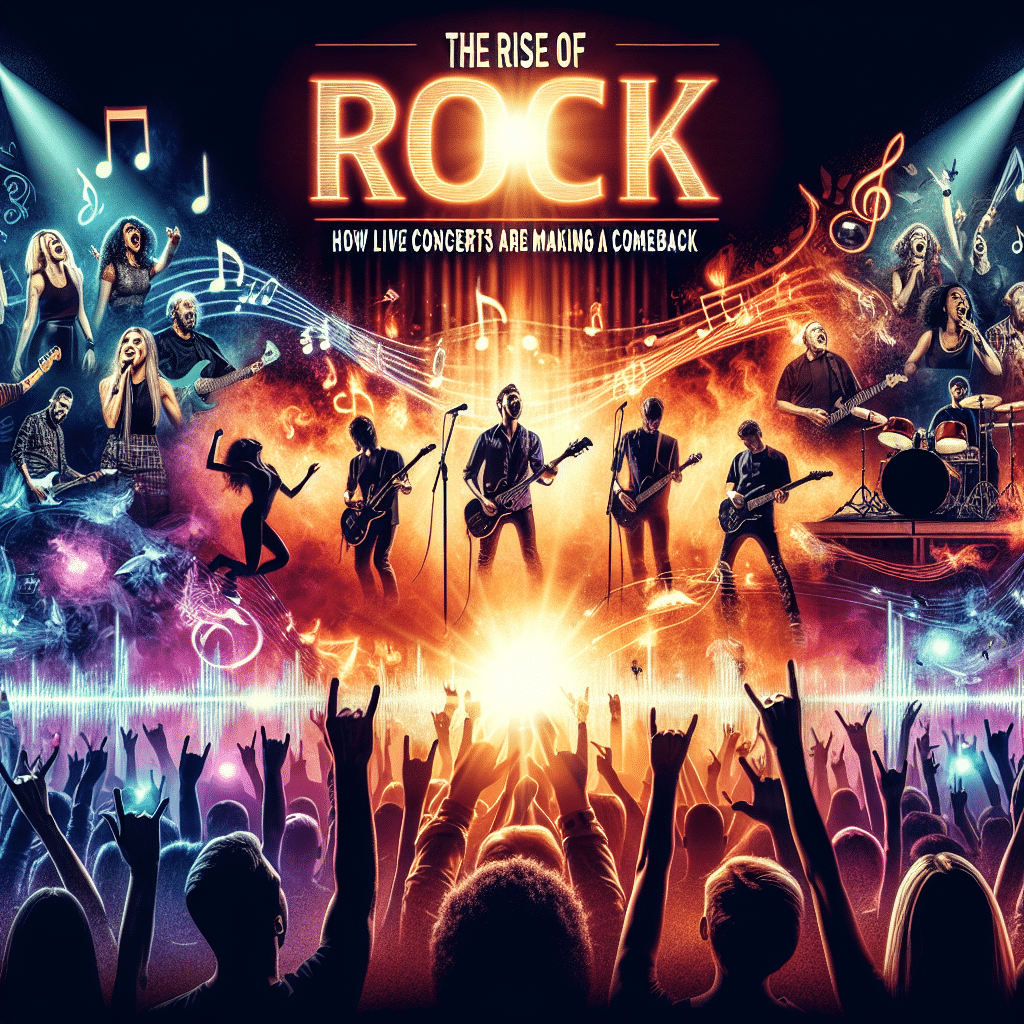The Rise of Rock: How Live Concerts are Making a Comeback

The world of music has always been in flux, evolving with technological advancements, cultural shifts, and changing tastes. In recent months, a pronounced resurgence of rock music has begun to capture the attention and passion of fans worldwide. Particularly, live concerts have experienced a remarkable comeback, fueling the genre's revival. This article will explore this renaissance, the significance of live performances, and what it means for the future of rock.
The Evolution of Rock Music
Rock music originated in the 1950s, blending elements of rhythm and blues, country, and jazz. Artists like Elvis Presley and Chuck Berry paved the way for subsequent generations, leading to the iconic bands of the 1960s and 70s, such as The Beatles, The Rolling Stones, and Led Zeppelin. Rock music not only showcased musical innovation but also became an influential cultural movement that resonated with youth rebellion, love, and social activism.
However, over the years, changes in musical preferences, the rise of pop and hip-hop, and the emergence of digital media have led to a decline in rock's mainstream prominence. For years, rock seemed like a genre in retreat, with the focus shifting toward genres that emphasize production and social media appeal, leading to fewer live rock concerts and a diminishing presence in popular music.
The Factors Behind the Rock Comeback
1. Nostalgia and Legacy
The resurgence of rock can largely be attributed to nostalgia. Many older fans are revisiting the music of their youth, often sharing their fond memories with their children and younger generations. Iconic bands have capitalized on this trend, reuniting for tours and harnessing their legendary status to attract fans across multiple age groups.
See Also:![Punk, Grunge, and Beyond: Celebrating [Artist]'s Creative Return with [Album Name]](https://hits1000.com/wp-content/uploads/2024/10/1729862895-100x100.png) Punk, Grunge, and Beyond: Celebrating [Artist]'s Creative Return with [Album Name]
Punk, Grunge, and Beyond: Celebrating [Artist]'s Creative Return with [Album Name]2. New Bands and Fusion Genres
With the resurgence of interest in rock, many new bands have emerged, blending classic rock sound with modern influences. Genres such as indie rock, alternative rock, and even punk have seen fresh interpretations, creating a diverse spectrum of music that appeals to both traditional rock fans and new listeners. Bands such as Greta Van Fleet and The Pretty Reckless have been crucial in reigniting interest in rock music through their innovative sounds and captivating performances.
3. The Evolution of Live Music Experiences
After a long pause due to the pandemic, concert-goers have a newfound appreciation for live music. The thirst for authentic experiences, coupled with the longing for connection, has made attending live concerts a highly coveted activity. Concert venues are adapting by providing unique atmospheres, immersive experiences, and enhanced technology that take live performances to new heights.
The Importance of Live Rock Concerts
1. A Shared Experience
Rock concerts foster strong communal ties. The thrill of experiencing a live performance, surrounded by fellow fans, creates a sense of belonging and allows individuals to connect over shared emotions. The energy of a live rock performance can be transformative, igniting feelings of joy, freedom, and unity.
See Also: Master of the Ax: Spotlight on the Best Rock Guitarists Who Shaped Music
Master of the Ax: Spotlight on the Best Rock Guitarists Who Shaped Music2. Artist-Fan Connection
Live concerts also facilitate a crucial connection between artists and their fans. Musicians can gauge audience reactions, which informs their performances and strengthens their artistic expression. Moreover, the authenticity of live music captivates listeners in a way that recorded music often fails to do, making the experience memorable and formative for fans.
3. Economic Impact
The revival of live rock concerts holds significant economic implications. Concert tours generate millions for local economies and provide employment opportunities within venues, catering services, and related industries. As rock concerts become more prevalent, they can bolster a sense of cultural identity in communities.
Challenges Facing The Rock Revival
While the resurgence of rock concerts and the genre itself is encouraging, certain challenges remain. Ensuring health and safety during performances, particularly after the pandemic, is paramount. Additionally, there are concerns about ticket prices, as the cost of attending concerts can be prohibitive for many fans.
Furthermore, the changing landscape of music consumption continues to impact the traditional live concert model. With the rise of streaming services and virtual events, the way fans engage with music is evolving. However, these challenges present opportunities for innovation—artists and promoters are experimenting with hybrid events and enhanced streaming technologies to broaden audience reach.
See Also:![Vibrations and Memories: Attending [Band Name]'s Landmark Show](https://hits1000.com/wp-content/uploads/2024/11/1730879805-100x100.png) Vibrations and Memories: Attending [Band Name]'s Landmark Show
Vibrations and Memories: Attending [Band Name]'s Landmark ShowConclusion
The rise of rock music and the revival of live concerts demonstrate the genre's enduring relevance and the power of music to unite people. As the world emerges from a period of isolation and uncertainty, live performances offer healing and solace, reaffirming the communal spirit that rock embodies. The importance of this resurgence is multi-faceted, from nostalgic connections to economic impacts and the importance of shared experience.
At its core, the comeback of live rock concerts emphasizes the need for authentic human experiences. Rock music stands as a testament to creativity, resilience, and the universal language of music, reminding us that it can be the backdrop to countless significant moments in our lives.
FAQs
1. Why have live rock concerts become more popular recently?
Live rock concerts have gained popularity due to a combination of nostalgia, the emergence of new bands integrating modern influences, and a renewed appreciation for authentic shared experiences post-pandemic.
2. What new trends have emerged in the rock genre?
See Also:![Rock Legends Unite: A Night to Remember at [Band/Artist Collaboration]](https://hits1000.com/wp-content/uploads/2024/11/1731456416-100x100.png) Rock Legends Unite: A Night to Remember at [Band/Artist Collaboration]
Rock Legends Unite: A Night to Remember at [Band/Artist Collaboration]New trends include the fusion of classic rock sounds with genres like indie and alternative rock. Many young artists are reinventing the rock sphere, leading to the emergence of diverse musical expressions within rock.
3. Are rock concerts financially beneficial for communities?
Yes, rock concerts significantly impact local economies by generating revenue through ticket sales, merchandise, food and beverage sales, and tourism, while also creating jobs within related industries.
4. How can I find live rock concerts near me?
You can find live rock concerts by checking local venue schedules, band websites, or ticketing platforms. Social media can also be a great resource for discovering upcoming performances in your area.
See Also: Revisiting the Rock Icons: A Deep Dive into the Legacy of Classic Rock Bands
Revisiting the Rock Icons: A Deep Dive into the Legacy of Classic Rock Bands5. What are some tips for attending live concerts?
To enhance your concert experience, arrive early to secure good seating, stay hydrated, and consider earplugs to protect your hearing. Also, familiarize yourself with the venue's policies regarding items you can bring and transportation options.
If you want to know other articles similar to The Rise of Rock: How Live Concerts are Making a Comeback you can visit the category Rock.
